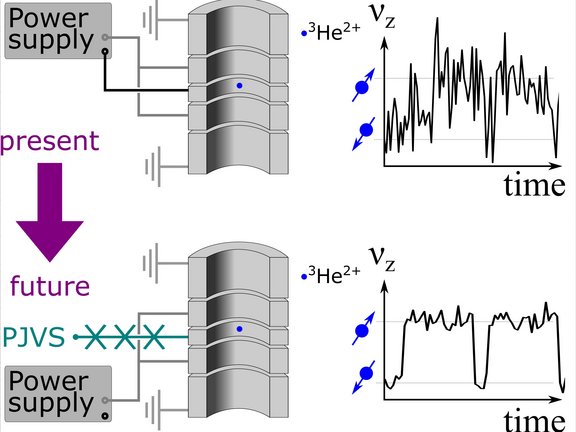An ultra-stable voltage source based on the inverse AC Josephson Effect was implemented in a Penning-trap setup dedicated to high precision measurements of electron and nuclear magnetic moments. Compared to other ultra-stable voltage sources used in Penning-trap experiments, this is significantly more stable on account of its quantized voltage steps. The authors were able to demonstrate that this increased the motional frequency stability of a trapped ion by about a factor of two with respect to state-of-the-art voltage sources and thus allows for a more precise determination of the free cyclotron frequency. “The enhanced stability in the trapping potential opens up the possibility for improved determinations of the proton and antiproton magnetic moments and direct high-precision measurements of the nuclear magnetic moments of 2H, 3He, and 7Li”, explains first author Annabelle Kaiser.
In the context of mass measurements, this improvement will reduce measurement times for reaching a similar precision compared to other setups and therefore allow for mass ratio measurements with unprecedented relative statistical uncertainties below the 1012 level.
Original publication:
Josephson voltage standards as ultra-stable low-noise voltage sources for precision Penning-trap experiments;
A. Kaiser, S. Dickopf, M. Door, R. Behr, U. Beutel, S. Eliseev, A. Kaushik, K. Kromer, M. Müller, L. Palafox, S. Ulmer, A. Mooser, and K. Blaum
doi: https://doi.org/10.1063/5.0206779
Webpage (Abteilung Blaum) am MPIK
